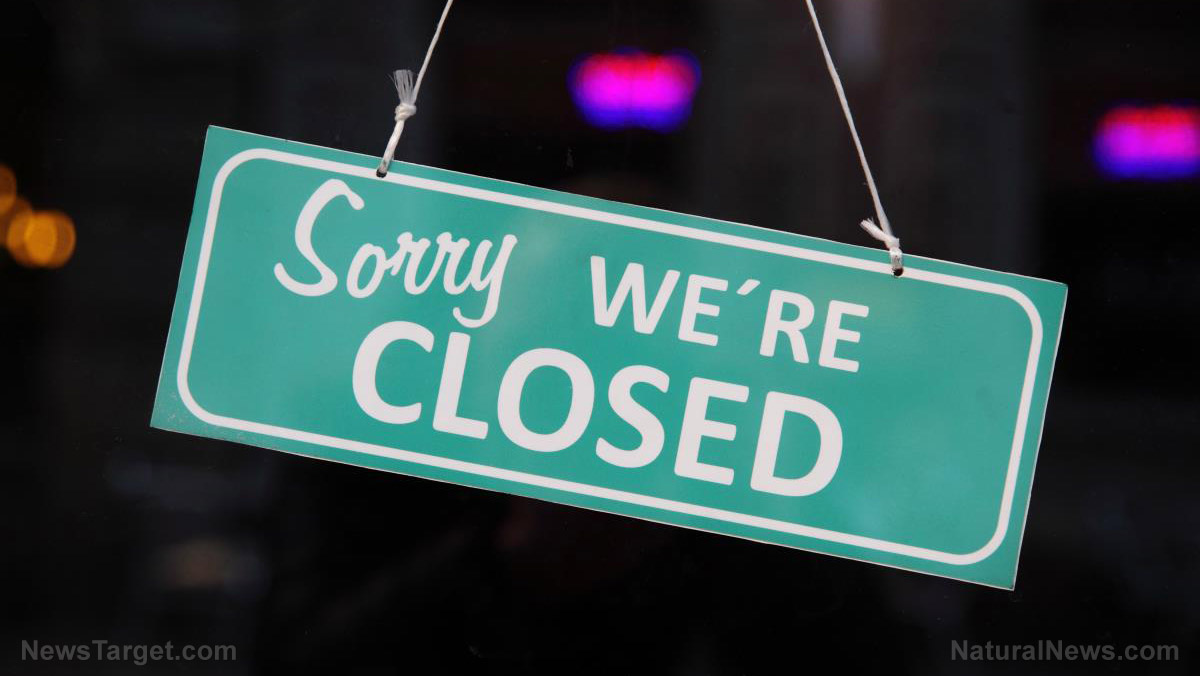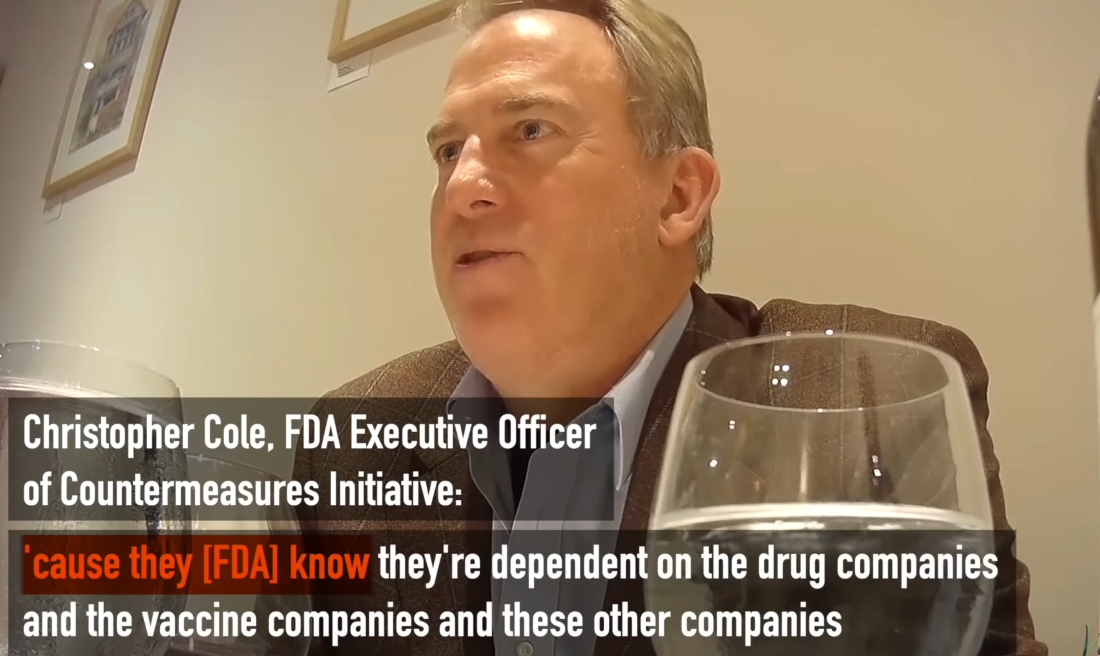Delay-cious: BBQ joint still under construction 8 months after scheduled grand opening due to covid restrictions and slowdowns
02/23/2022 / By Nolan Barton

A buffet of issues has forced a restaurant in Chandler, Arizona to push back its grand opening for eight months and counting.
“Supplies, materials, labor force – so everything. Timeline has just been pushed and pushed and pushed,” said Pork on a Fork owner Wes Hansen.
Hansen’s barbecue joint is still a construction site at the moment. Supply chain issues pushed back the landlord’s exterior work, and now the interior work is facing the same problems.
“We first announced this would be open May of last year,” the owner said. “It’s very discouraging, but it’s out of our hands. We know it’s a problem everyone is facing, so rather than be angry about it or frustrated, we just have to roll with the punches and be ready for day one.”
To make use of a staff Hansen already hired, he put in a food truck in front of his business to help cover the expenses of the unexpected wait.
“People are knocking on the door. So now we can serve our staples to them,” he said. “Time is money. We signed this lease a year ago next month.”
They’re hoping to get the main doors open soon. “We are told April. I’m crossing my fingers, my toes, everything,” said Hansen, whose passion for pork started when he was a kid growing up on a hog farm in Nebraska.
Manhattan restaurant closes two weeks after opening
Starting a new business has been a problem throughout the Wuhan coronavirus (COVID-19) pandemic.
In December 2020, Slovenian restaurant Pakerna in Upper West Side, Manhattan was forced to close two weeks after its opening due to labor shortage. (Related: Labor shortage and rising food prices force Vanceboro couple to close restaurant.)
Waitresses that worked there left to become contact tracers, while bartenders went on unemployment. On most nights, owner Dean O’Neil only had one chef working in his kitchen.
“I couldn’t work out really why. And then I found it was basically they could receive money without having to work. Then they wanted to be paid only in cash. It’s unacceptable” said O’Neil.
His workers took advantage of the $300 weekly enhanced unemployment insurance included in the stimulus package signed by former President Donald Trump on December 27, 2020.
Even established restaurants found it difficult to hit the ground running when states lifted and eased pandemic restrictions last year. Manpower, or lack of it, was the prevailing reason for their troubles.
Restaurant owners and managers said at the time that the federal unemployment bonuses handed out during the pandemic incentivized people to stay home instead of working.
COVID restrictions hurt restaurant business
Occupancy restrictions also hurt restaurants in some areas.
New York City and New York state had different restrictions. Guests were not allowed to sit at the bar counter in New York City but they were in New York state. Restaurants in New York City tend to be smaller and the rule made it impossible for a lot of places to stay open.
While New York state allowed restaurants at 50 percent occupancy, New York City closed down twice and restaurants were given 25 percent occupancy mandates for many months.
Eric St. Clair, manager at Proper 21, a bar located in Washington, said the biggest issue they faced was the restriction imposed by Washington Mayor Muriel Bowser that kept restaurants at 25 percent capacity.
As for hiring woes, St. Clair noted that smaller restaurants were hurt much harder than corporate restaurants or chains. He described how for the longest time, restaurants in the city would just have one manager and one bartender doing everything.
Labor shortages spare no one
But big restaurants were not really spared from labor shortages.
One McDonald’s location in Florida went viral as it offered $50 to anyone who would show up for a job interview. Other franchises like Taco Bell held hiring events with free foods.
Jim Walker, a local restaurateur in California and former president of the Newport Beach Restaurant Association, said the entire industry had been thrown into disarray.
Walker, who owns Bungalow Restaurant, Cedar Creek and Domenico’s Pizza, offered bonuses for new hires who stay on for a certain length of time and offered existing staff referral bonuses.
Vaccine mandates worsen problems
Vaccine mandates targeting restaurants have exacerbated the situation. (Related: Restaurant owners and employees reject enforcing vaccine mandates and acting as vaccine police.)
That’s why a group of restaurant owners led the filing of a lawsuit in August last year against then-New York City Mayor Joe de Blasio over his vaccine mandate targeting “certain establishments.”
“This vaccine mandate is arbitrary and capricious due to the fact that it targets certain establishments but not others,” wrote the plaintiffs, led by a group called the Independent Restaurant Owners Association Rescue.
Some owners have raised concerns about restaurant staff having to bear the brunt of potential customers’ outrage over the rule. They have also expressed concerns about some of their workers quitting if they’re required to be vaccinated.
More related stories:
Restaurant operators say business conditions have significantly DECLINED.
France threatens to imprison restaurant owners who serve the “unvaccinated.”
NOT THE VAX POLICE: Restaurant owners are refusing to ask diners for proof of vaccination.
Nashville restaurant owners speak out about labor shortages in the area.
Watch this protest against lockdown in December 2020 by New York restaurant workers at Times Square.
This video is from the Some Thoughts on Things channel on Brighteon.com.
Sources include:
Submit a correction >>
Tagged Under:
big government, bubble, Collapse, covid-19, debt bomb, debt collapse, labor shortage, market crash, medical fascism, Medical Tyranny, New York City, pandemic, risk, supply chain, vaccine wars, vaccines
This article may contain statements that reflect the opinion of the author
RECENT NEWS & ARTICLES
MedicalTyranny.com is a fact-based public education website published by Medical Tyranny Features, LLC.
All content copyright © 2018 by Medical Tyranny Features, LLC.
Contact Us with Tips or Corrections
All trademarks, registered trademarks and servicemarks mentioned on this site are the property of their respective owners.




















